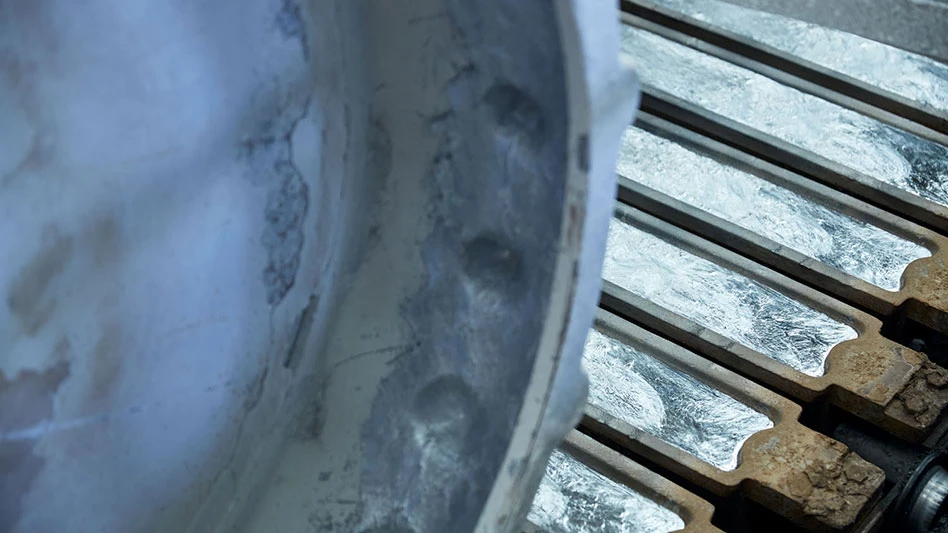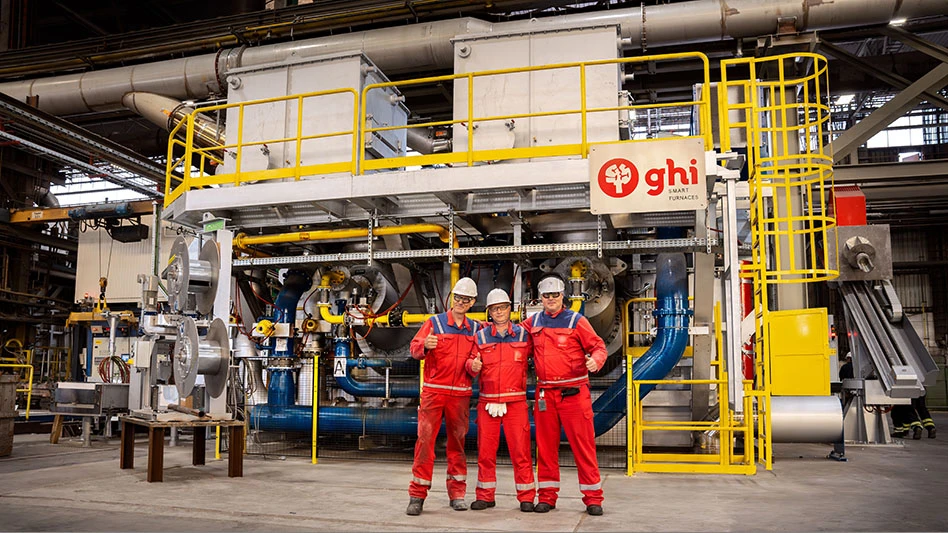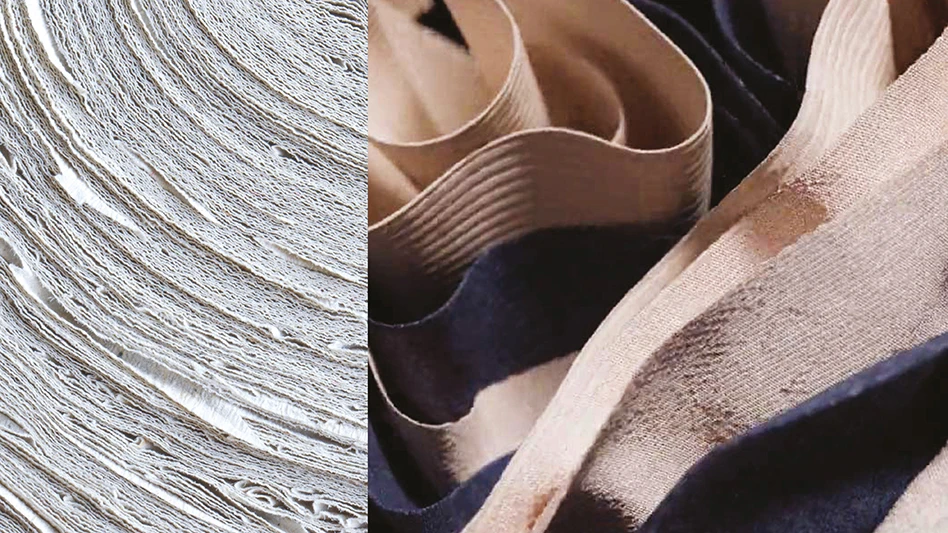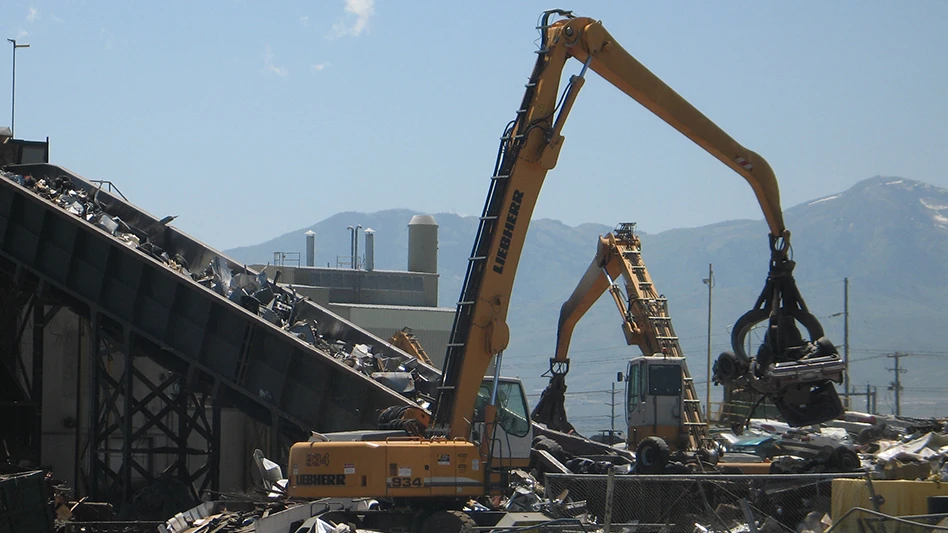
Photo courtesy of Befesa
Befesa S.A., a Luxembourg-based provider of hazardous waste recycling services to the steel and aluminum industries, has reported its third consecutive quarter of growth, achieving 55 million euros, or $59.7 million, in adjusted earnings before interest, taxes, depreciation and amortization (EBITDA) compared with 45 million euros, $48.9 million, in the comparable quarter of 2023.
The company attributes its performance to lower treatment charges, improved zinc hedging prices, reduced coke prices, strong volumes in Europe and solid performance in its U.S. recycling plants.
“Befesa has delivered its third consecutive quarter of growth, demonstrating the resilience of our business model and our ability to navigate challenging market conditions,” says Javier Molina, executive chair of Befesa. “Our strong performance in Europe and strategic hedging activities will underpin our growth. We have also benefited from favorable energy prices and a focused approach to cost management, particularly in the U.S.
“As we look to the second half of 2024, we are confident in achieving our full-year guidance, which we have narrowed, and continuing to deliver sustainable value for our stakeholders."
RELATED: From dust to dollars
For the first half of the year, Befesa's total revenue increased by 1 percent year over year to 621 million euros, or $674.4 million, from 615 million euros, or $667.9 million, while adjusted EBITDA increased by 9 percent to 103 million euros, or $118.4 million, from 95 million euros, or $103.2 million. The company says it benefited from a combination of positive factors, including robust volumes, favorable decreases in zinc treatment charges, advantageous zinc hedges, lower energy prices and improved overall operating costs.
Electric arc furnace (EAF) steel dust volumes increased by 3 percent through the first half of this year compared with the first half of 2023 to 610,000 metric tons, with average capacity utilization of 71 percent. In Europe, EAF steel dust volumes remained solid despite challenging steel production levels, while China’s volumes continued to be affected by the ongoing real estate crisis in that country. In the U.S., steel dust volume in the recycling business remained strong, while the company’s zinc refining plant in North Carolina operated at stable utilization levels and focused on cost-cutting to improve profitability.
Befesa says recycled volumes of aluminum salt slags increased by 29 percent to 221,000 metric tons, with an average capacity utilization of 94 percent, primarily driven by the resumption of operations at the company’s Hanover, Germany, plant. Secondary aluminum alloys volumes increased by 4 percent to 91,000 metric tons, with an average capacity utilization of 89 percent.
Zinc London Metal Exchange prices averaged 2,444 euros per metric ton in the first half of tis year, which is 7 percent lower than in the first half of 2023. Zinc treatment charges this year were set at $165 per ton, 40 percent lower than the previous year. The company says it capitalized on zinc price trends to extend hedging from July 2025 to the first quarter of 2026 at 2,650 euros, or $2,878. Aluminum alloy prices increased 4 percent year over year, averaging 2,327 euros, or $2,527, per metric ton.
Decreased energy prices in the first half of this year also positively affected Befesa's operating costs, while the average coke price continued to normalize in the second quarter levels below the 2022 average price.
On June 24, Befesa acquired the remaining 50 percent stake in Recytech S.A., a French steel dust recycling joint venture with Recylex S.A., for 40 million euros ($43.4 million), including 11 million euros ($11.9 million) in cash or cash equivalents, reducing the net payment to 29 million euros ($31.5 million).
Located in the Pas-de-Calais department in France, Recytech processes steel dust from EAFs to produce waelz oxide (WOX). With 50 employees, it recycles up to 110,000 metric tons of EAF steel dust annually, Befesa says, producing about 45,000 metric tons of WOX. The acquisition, aligned with Befesa’s Sustainable Global Growth Plan, strengthens Befesa’s European market leadership, leveraging Recytech’s strategic location within the European steel industry.
The company expects a stronger overall second half of the year based primarily on the better commodity price environment supported by robust performance of the business across the regions Befesa operates. As a result, Befesa has tightened its full-year guidance with an adjusted EBITDA range of 205 million euros to 235 million euros ($222.6 million to $255.2 million) from 195 million euros to 235 million euros ($211.8 million to $255.2 million). The updated guidance represents an increase in adjusted EBITDA of 13 percent to 29 percent year over year.
Key figures
| in millions of euros | H1 2023 | H1 2024 | Change | Q2 2023 | Q2 2024 | Change |
| Revenue | 615.5 | 621.2 | 0.9% | 293.5 | 322.8 | 10.0% |
| Adj. EBITDA | 94.7 | 103.1 | 8.8% | 44.6 | 54.5 | 22.1% |
| Net profit | 20.2 | 20.0 | -1.0% | 5.1 | 10.6 | >100% |
| EPS | 0.51 | 0.50 | -2.0% | 0.13 | 0.26 | 100% |
| Operating cash flow1 | 55.4 | 70.4 | 27.1% | 35.6 | 55.8 | 57.0% |
| Net debt | 567.0 | 645.6 | 13.9% | 567.0 | 645.6 | 13.9% |
| Net leverage2 | x2.96 | x3.39 | x2.96 | x3.39 |
Latest from Recycling Today
- ExxonMobil will add to chemical recycling capacity
- ESAB unveils new cutting torch models
- Celsa UK assets sold to Czech investment fund
- EPA releases ‘National Strategy to Prevent Plastic Pollution’
- South Carolina launches recycling app
- Resource Recycling Systems transitions to employee ownership model, refreshes branding
- APR upgrades PCR certification program
- WM completes $40M automation project at Philadelphia MRF





